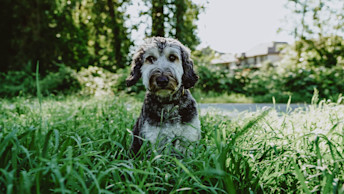August 26, 2022
Avoid These Toxic Plants for dogs

We all know that dogs LOVE meat. And fruits and vegetables are welcomed by most dogs as well. But there are always those rogue pups who take every opportunity to taste test anything and everything they can get their teeth on, including plants that may be toxic for them. Some plants are more toxic than others, but the wise pet parent should educate themselves and make sure none of them are on your pup’s menu, intentionally or not!
Plants Toxic to Dogs
These plants are the most toxic to dogs and should never be available for nibbling or consumption:
- Castor bean or castor oil plant (Ricinus communis)
- Cyclamen (Cylamen spp.)
- Dumbcane (Dieffenbachia)
- Hemlock (Conium maculatum)
- English Ivy, both leaves and berries (Hedera helix)
- Mistletoe (Viscum album)
- Oleander (Nerium oleander)
- Thorn apple or jimsonweed (Datura stramonium)
- Yew (Taxus spp.)
- Any mushroom you cannot identify as safe
There are a host of other plants toxic to dogs and some of them may be surprising. While the ripened fruit of the tomato plant isn’t an issue (other than being somewhat acidic), the tomato plant is toxic. Poinsettias are well known to most pet parents as a non-menu item, but lilies, tulip and narcissus bulbs, rhubarb, azaleas, wisteria and rhododendrons are also toxic in varying levels. So, if you have a dog with an adventurous palate, do your research before you plant your garden or bring flowers or houseplants into your house.
What are the symptoms to look for if your pup has eaten a toxic plant?
The most common symptoms of toxic plant ingestion in dogs include:
- Vomiting
- Diarrhea
- Weakness
- Changes in urine
- Drooling
Bulbs of any kind are toxic to dogs and can result in gastrointestinal upset, stomach pain, and loss of appetite.
Skin irritation can also occur if your dog comes into contact with some toxic plants. In these cases, you could see rashes, blisters and itchiness.
What do you do if you suspect your pup has eaten or encounters a poisonous plant?
Take your dog to the vet as soon as possible. Make note of the symptoms your fur kid is experiencing and if possible, take a sample of the plant with you or even a photo of it.
Don’t let your beloved furry friend be a victim. Clear your yard of all mushrooms and be careful what kind of plants you keep in your garden and your house. Do your due diligence to keep your dog healthy and happy!


